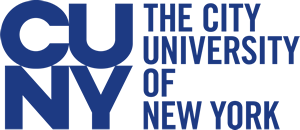Institute Coaching
Individualized, Relationship-Based Professional Development
We are currently able to offer Institute Coaching
on a fee-for-service basis.
What is coaching?
Coaching is a relationship-based process designed to build capacity for specific professional dispositions, skills, and behaviors. The coach’s approach is collaborative and strengths based; the coach works with the coachee through a non-linear process of goal-setting, implementation, and reflection. Coaching is a unique form of professional development in that it is individualized, ongoing and actively supports the translation of newly gained knowledge into practice.
How is Institute Coaching different?
Institute Coaches adhere to the New York State Coaching Competencies. The competencies guide coaches to be deeply respectful and strengths-based in our interactions. We believe that the way we interact with coachees is a model for their interactions with colleagues and children. We value experimentation and reflection as primary learning strategies.
Early Childhood Professionals who participate in Institute coaching will:
- Identify their own professional development goals and become more self-directed in pursuing those goals.
- Increase the effectiveness of their practice with children and families.
- Develop dispositions that foster strong relationships with children and families.
- Be better able to articulate their practice and make intentional decisions.
- Develop reflective capacity.
- Sustain changes they have made in their practice.
Who can receive coaching?
The Institute Coaches provide coaching to Principals, Executive Directors, Educational Directors, Family Workers, Teachers, Assistant Teachers and Aides. We believe that individuals at every stage of their career benefit from coaching.
Our coaches work in a variety of settings, from home-based, informal family providers (through the CARE program), to centers participating in quality improvement efforts like Start with Stars, to current and emerging leaders in the Early Childhood Leadership Initiative, to fee-for-service clients across the city in infant-toddler and pre-K programs in centers and schools.
How long is the commitment to coaching?
Coaching is a relationship-based process and is effective as a result of the trust that is built between the coach and coachee over time. Therefore, a commitment of at least 12 weeks is necessary to begin and most coachees prefer an engagement of a year or more. The length of visits varies, however coachees must be able to meet individually with their coaches for a minimum of 30 minutes. Coaching is also available off-site or over the phone.
Can I receive professional development credit for coaching?
The New York State Office of Children and Family Services (OCFS) now grants professional development credit for coaching performed by a T-TAP credentialed coach.
Who are the coaches?
The Institute Coaches are NYAEYC Credentialed Training and Technical Assistance Specialists with Coach Designations . They have deep professional experience as teachers and program leaders at exemplary programs. Click a coach to learn more about them!





What Impact has Institute Coaching Had on New York State?
Institute coaches provide individualized, reflective coaching to early childhood professionals in order to meet their self-identified, competency-based professional development goals. The Institute’s coaching team serves dozens of teachers and directors in all five boroughs, at an average of 35 hours of coaching provided per person. Through their efforts, 2,400 children in the 2016-17 school year were directly impacted by improved teacher practice and program leadership in their classrooms. The coaching team also produced coaching videos that can be used one-on-one or in group settings to describe and analyze the coaching process.

 Institute Menu
Institute Menu


 (646) 664-8261
(646) 664-8261 info@earlychildhoodny.org
info@earlychildhoodny.org @NYEarlyChildPD
@NYEarlyChildPD New York Early Childhood Professional Development Institute
New York Early Childhood Professional Development Institute PDI Blog
PDI Blog